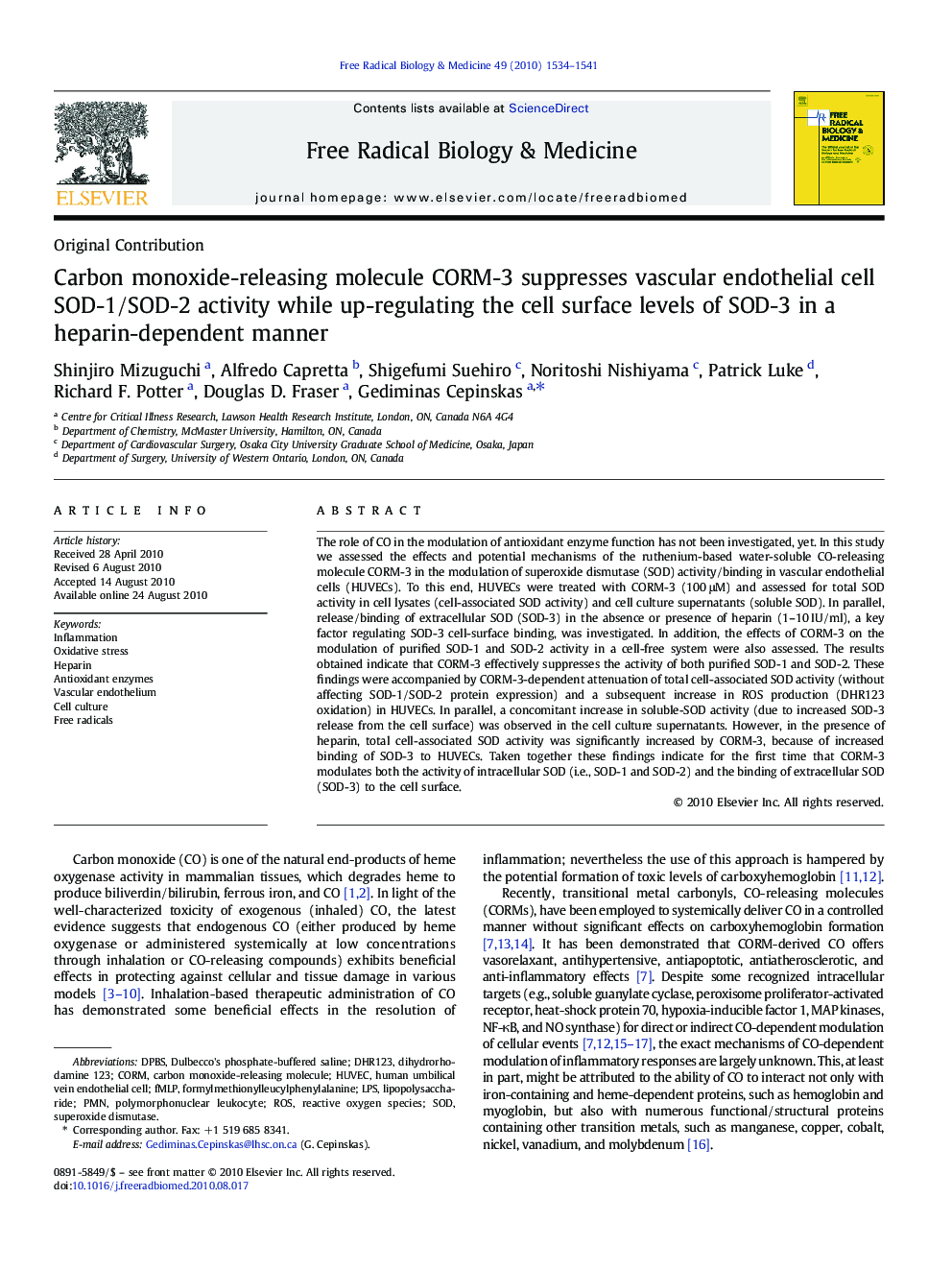| Article ID | Journal | Published Year | Pages | File Type |
|---|---|---|---|---|
| 1909399 | Free Radical Biology and Medicine | 2010 | 8 Pages |
The role of CO in the modulation of antioxidant enzyme function has not been investigated, yet. In this study we assessed the effects and potential mechanisms of the ruthenium-based water-soluble CO-releasing molecule CORM-3 in the modulation of superoxide dismutase (SOD) activity/binding in vascular endothelial cells (HUVECs). To this end, HUVECs were treated with CORM-3 (100 μM) and assessed for total SOD activity in cell lysates (cell-associated SOD activity) and cell culture supernatants (soluble SOD). In parallel, release/binding of extracellular SOD (SOD-3) in the absence or presence of heparin (1–10 IU/ml), a key factor regulating SOD-3 cell-surface binding, was investigated. In addition, the effects of CORM-3 on the modulation of purified SOD-1 and SOD-2 activity in a cell-free system were also assessed. The results obtained indicate that CORM-3 effectively suppresses the activity of both purified SOD-1 and SOD-2. These findings were accompanied by CORM-3-dependent attenuation of total cell-associated SOD activity (without affecting SOD-1/SOD-2 protein expression) and a subsequent increase in ROS production (DHR123 oxidation) in HUVECs. In parallel, a concomitant increase in soluble-SOD activity (due to increased SOD-3 release from the cell surface) was observed in the cell culture supernatants. However, in the presence of heparin, total cell-associated SOD activity was significantly increased by CORM-3, because of increased binding of SOD-3 to HUVECs. Taken together these findings indicate for the first time that CORM-3 modulates both the activity of intracellular SOD (i.e., SOD-1 and SOD-2) and the binding of extracellular SOD (SOD-3) to the cell surface.
